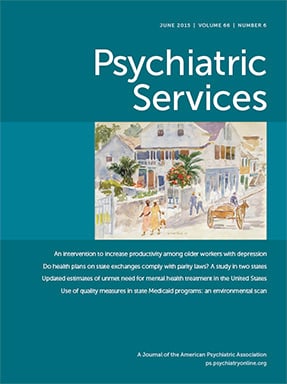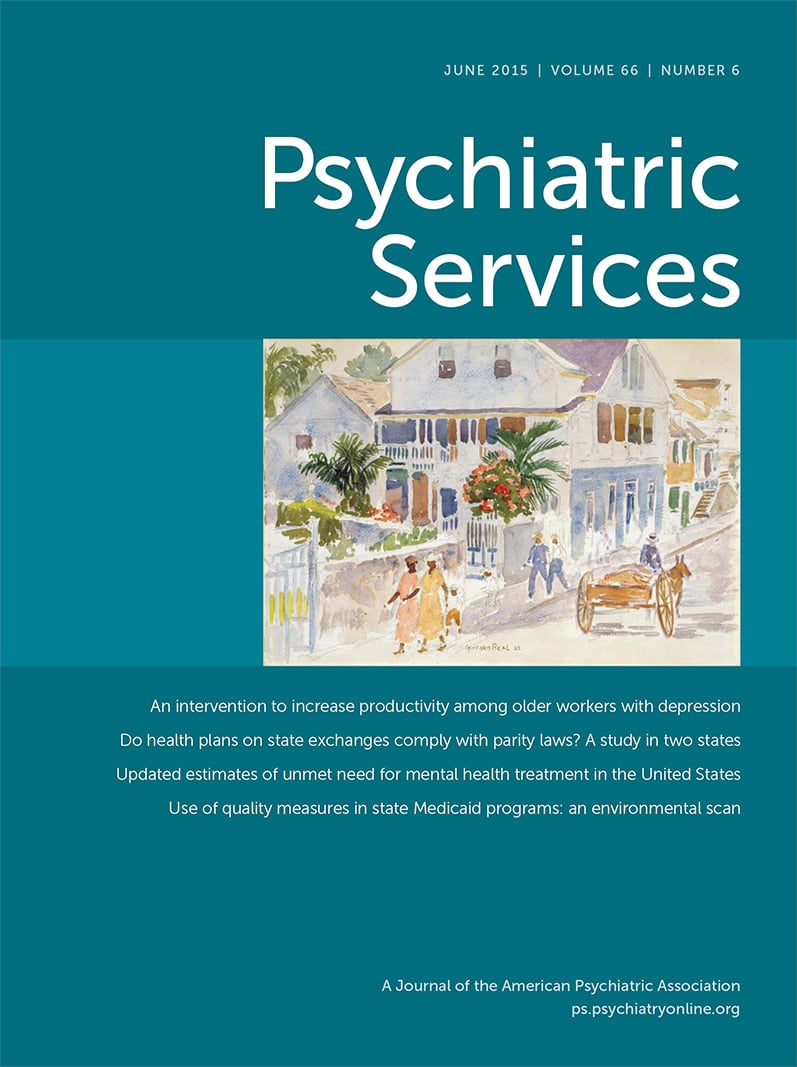In this issue of Psychiatric Services, Lerner and colleagues report on an expansion of their previous work in applying population health and telephone care principles to the management of depression in the workforce. The work-focused intervention (WFI) is a suite of interventions based on established treatment modalities, such as cognitive-behavioral therapy (CBT). In addition to lowering absenteeism among depressed workers, a primary objective of the WFI is to reduce so-called presenteeism, which occurs when symptoms of illness impair an individual’s ability to function effectively at work. The WFI counselor uses a telephone-based protocol to develop a work-focused CBT strategy with the depressed worker. Counseling techniques derived from disability and rehabilitation models are also employed to help workers create strategies to master the workplace and enhance their sense of agency and purpose. Participants in the study by Lerner and colleagues had screened positive on the PHQ-9 for major depressive disorder, persistent depressive disorder, or both. The average PHQ-9 score indicated symptoms in the moderate range; however, 21% of the entire sample had scores that placed them in the severe range. Therefore, a secondary objective of the WFI was to reduce the severity of depression symptoms.
Lerner and colleagues found statistically significant improvement among WFI participants, compared with a control group, including improvements in workplace performance, attendance at work, and depression symptoms. Significantly for employers, the cost of the intervention was far lower than the demonstrable improvement in productivity. In addition, when outcomes of WFI participants were compared with those of usual-care participants who received treatment from an employer-sponsored employee assistance program (EAP), the statistical significance of the improvements among WFI participants was maintained, although the separation between WFI participants and the EAP group was not as wide. A head-to-head comparison between the WFI and EAPs for selected populations would help in determining which conditions and which outcomes are best targeted by each intervention.
The findings of this study may be important for other reasons. Given the shortage of psychiatrists and other, nonphysician mental health clinicians, the ability of this telephone- and Web-based intervention to provide effective care at the population level has important implications for other settings where access to mental health services is limited. Among these are public schools, colleges and universities, and other health care settings. Smaller primary care settings, where colocating mental health clinicians is often difficult, may stand to derive particular benefit from such interventions.
The burden of psychiatric illness is significant at both the individual and population levels. Psychiatric disorders, including those associated with substance use, are the preeminent causes of years of life lost to disability among persons between the ages of 15 and 45 in the United States and in many other developed countries. Even in countries that are undergoing transformations from agrarian to more industrialized economies, mental and substance use disorders are major causes of disability. It is estimated by the World Economic Forum that the impact of noncommunicable diseases, including mental disorders, on the direct and indirect costs of health care will escalate markedly between now and 2030. Even more striking is the potential impact of mental disorders and cardiovascular illness on total world economic output.
If these burdens in disability, economic loss, and human suffering were not enough, it is by now well known that patients with mental and substance use disorders are more likely than age-matched peers to have other substantial general medical comorbidities and to die at younger ages. In a report prepared for the American Psychiatric Association, Milliman found dramatically higher medical costs for patients with mental disorders, primarily driven by the costs of hospital-based medical and surgical care. Many of the interventions in clinical settings for such patients depend on population screening and on team-based and collaborative care. Further targeted studies focusing on depressed populations in general medical settings may be worth undertaking to determine whether elements of the WFI can be of benefit outside the workplace.

